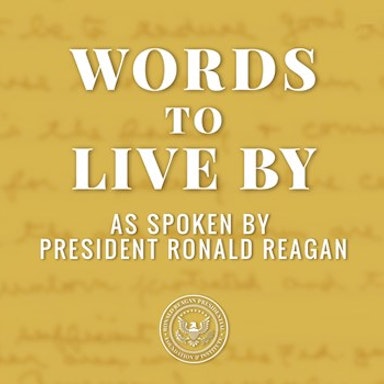
Podcast
Words To Live By
An audio podcast featuring Ronald Reagan speeches and radio addresses from the 1960s through the 1990s. A new Words to Live By Podcast will be posted every Tuesday.

Podcast
An audio podcast featuring Ronald Reagan speeches and radio addresses from the 1960s through the 1990s. A new Words to Live By Podcast will be posted every Tuesday.